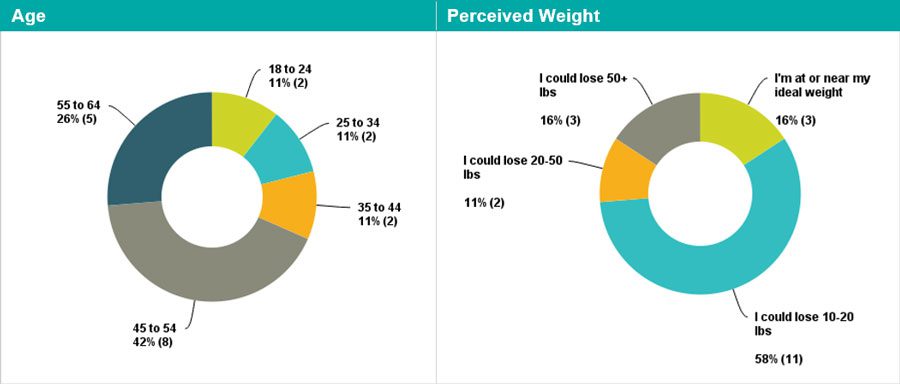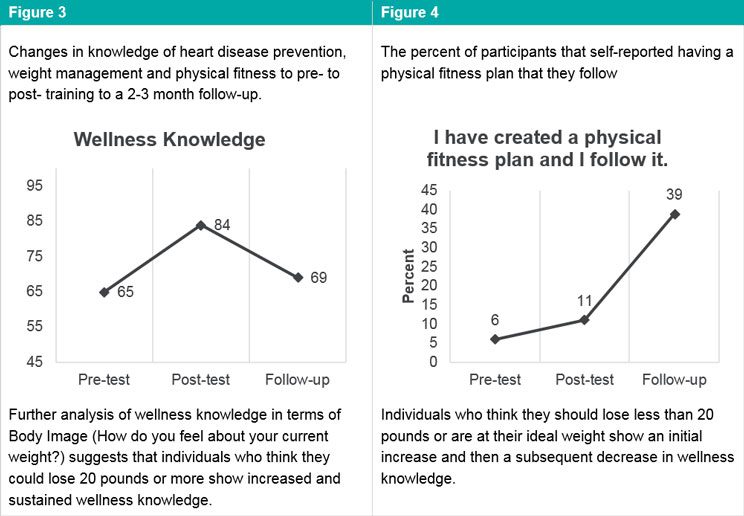Solutions ∨
Learning and Performance → ∨
Mandatory TrainingIssue required courses and monitor compliance ∨
Continuing EducationOffer clinicians training to meet license requirements ∨
Professional DevelopmentEngage staff and empower career growth ∨
Clinical DevelopmentEnhance skills with clinician-built content ∨
Certification ReviewBuild knowledge and increase exam pass rates ∨
Competency ManagementMeasure and evaluate knowledge, skills, and abilities ∨
Obstetrics SolutionReduce variation in care with data-driven learning ∨
Onboarding SolutionTailor nurse training and reduce turnover ∨
Recruiting and Staffing → ∨
Talent Acquisition AdvertisingTarget your recruitment to our 3M+ nurse community ∨
Validated AssessmentsGauge job fit with clinical, behavioral, situational assessments ∨
Nurse Job BoardPost your nurse opportunities on Nurse.com ∨
Compliance Management → ∨
Compliance SoftwareMeet requirements with easy to administer package ∨
Mandatory TrainingIssue required courses and monitor compliance ∨
View All Solutions → ∨
Who We Serve ∨
Who We Serve → ∨
Hospitals and Health SystemsLarge multisite systems, critical-access hospitals, staffing agencies ∨
Individual Healthcare WorkersPhysicians, nurses, clinicians, and allied health professionals ∨
Post-Acute and Long-Term CareSkilled nursing facilities, continuing care retirement communities and life plan communities, assisted living facilities, rehab therapy providers, and hospice agencies ∨
Behavioral and Community HealthBehavioral health, intellectual and developmental disabilities, applied behavior analysis, community health centers, and children, youth, and family-serving organizations ∨
Home Health and Home CareHome health and home care agencies and organizations ∨
Government OrganizationsFederal, state, and local entities ∨
Case Studies ∨
PAM Health Supports Business Growth, Employee Engagement, and Better Patient Outcomes With ReliasPAM Health utilized Relias to make post-acquisition employee onboarding easier and to influence positive patient outcomes through high-quality staff training and coaching. ∨
CSIG Depends on the Relias Platform Through Change and GrowthBefore 2020, Common Sail Investment Group (CSIG) conducted all its senior living staff training and education in person in different locations. ∨
Why Relias ∨
Why Relias → ∨
TechnologyEngage learners and ease burden for administrators ∨
Measurable OutcomesImprove workforce, organization, and patient results ∨
ServicesReduce administrative burden with professional solutions ∨
Expert ContentTrust Relias for quality, award-winning courses and tools ∨
CommunityTap into clinician resources and peer support ∨
Resources → ∨
How Mental Health and Social Determinants Are Driving Maternal MortalityThe CDC has uncovered another dimension affecting the already alarming problem of maternal mortality in the U.S… ∨
2023 DSP Survey ReportThe 2023 DSP Survey Report highlights feedback from 763 direct support professionals (DSPs) across the country on job satisfaction, supervision… ∨
Resources ∨
Resource Center → ∨
BlogKeep up with industry trends and insights ∨
Articles and ReportsReview recently published thought leadership ∨
Success StoriesRead about Relias clients improving outcomes ∨
EventsFind Relias at an upcoming industry conference ∨
WebinarsRegister for upcoming key topic discussions ∨
SupportContact us for help with your account ∨
PodcastExplore conversations with healthcare experts ∨
Upcoming Event ∨
Contact Sales → ∨
Company ∨
About Relias → ∨
CareersView our open positions ∨
MediaReview our latest news and make press inquiries ∨
EventsFind Relias at an upcoming industry conference ∨
Alliances and PartnershipsScan our industry connections and relationships ∨
AwardsCheck out our latest recognitions ∨
DiversityLearn more about Relias’ commitment to DEIB ∨
In the News → ∨
Log In ∨
Login Portals ∨
Relias Learning ∨
Nurse.com ∨
Relias Academy ∨
Wound Care Education Institute ∨
FreeCME ∨
Relias Media ∨
Solutions ∨
Learning and Performance → ∨
Mandatory TrainingIssue required courses and monitor compliance ∨
Continuing EducationOffer clinicians training to meet license requirements ∨
Professional DevelopmentEngage staff and empower career growth ∨
Clinical DevelopmentEnhance skills with clinician-built content ∨
Certification ReviewBuild knowledge and increase exam pass rates ∨
Competency ManagementMeasure and evaluate knowledge, skills, and abilities ∨
Obstetrics SolutionReduce variation in care with data-driven learning ∨
Onboarding SolutionTailor nurse training and reduce turnover ∨
Recruiting and Staffing → ∨
Talent Acquisition AdvertisingTarget your recruitment to our 3M+ nurse community ∨
Validated AssessmentsGauge job fit with clinical, behavioral, situational assessments ∨
Nurse Job BoardPost your nurse opportunities on Nurse.com ∨
Compliance Management → ∨
Compliance SoftwareMeet requirements with easy to administer package ∨
Mandatory TrainingIssue required courses and monitor compliance ∨
View All Solutions → ∨
Who We Serve ∨
Who We Serve → ∨
Hospitals and Health SystemsLarge multisite systems, critical-access hospitals, staffing agencies ∨
Individual Healthcare WorkersPhysicians, nurses, clinicians, and allied health professionals ∨
Post-Acute and Long-Term CareSkilled nursing facilities, continuing care retirement communities and life plan communities, assisted living facilities, rehab therapy providers, and hospice agencies ∨
Behavioral and Community HealthBehavioral health, intellectual and developmental disabilities, applied behavior analysis, community health centers, and children, youth, and family-serving organizations ∨
Home Health and Home CareHome health and home care agencies and organizations ∨
Government OrganizationsFederal, state, and local entities ∨
Case Studies ∨
PAM Health Supports Business Growth, Employee Engagement, and Better Patient Outcomes With ReliasPAM Health utilized Relias to make post-acquisition employee onboarding easier and to influence positive patient outcomes through high-quality staff training and coaching. ∨
CSIG Depends on the Relias Platform Through Change and GrowthBefore 2020, Common Sail Investment Group (CSIG) conducted all its senior living staff training and education in person in different locations. ∨
Why Relias ∨
Why Relias → ∨
TechnologyEngage learners and ease burden for administrators ∨
Measurable OutcomesImprove workforce, organization, and patient results ∨
ServicesReduce administrative burden with professional solutions ∨
Expert ContentTrust Relias for quality, award-winning courses and tools ∨
CommunityTap into clinician resources and peer support ∨
Resources → ∨
How Mental Health and Social Determinants Are Driving Maternal MortalityThe CDC has uncovered another dimension affecting the already alarming problem of maternal mortality in the U.S… ∨
2023 DSP Survey ReportThe 2023 DSP Survey Report highlights feedback from 763 direct support professionals (DSPs) across the country on job satisfaction, supervision… ∨
Resources ∨
Resource Center → ∨
BlogKeep up with industry trends and insights ∨
Articles and ReportsReview recently published thought leadership ∨
Success StoriesRead about Relias clients improving outcomes ∨
EventsFind Relias at an upcoming industry conference ∨
WebinarsRegister for upcoming key topic discussions ∨
SupportContact us for help with your account ∨
PodcastExplore conversations with healthcare experts ∨
Upcoming Event ∨
Contact Sales → ∨
Company ∨
About Relias → ∨
CareersView our open positions ∨
MediaReview our latest news and make press inquiries ∨
EventsFind Relias at an upcoming industry conference ∨
Alliances and PartnershipsScan our industry connections and relationships ∨
AwardsCheck out our latest recognitions ∨
DiversityLearn more about Relias’ commitment to DEIB ∨
In the News → ∨
Learning Management and TrainingResearch StudiesResearch
Employee wellness programs have many benefits to both employers and employees. Studies show that workplace wellness programs can increase work productivity and effectively reduce employer costs related to health care and absenteeism (Mattke et al, 2013).
This study examines the knowledge and health behavior outcomes associated with an educational series of mobile-friendly, micro-learning wellness courses and whether these associations, if any, persist over time.
The Wellness Series through Relias Learning are animated, mobile-friendly tutorials, each taking 10 minutes or less to complete. Micro-learning courses deliver information in small and focused bursts with embedded interactions and competency checks. Three of these micro courses were evaluated in this study;
- Heart Disease Prevention
- The Importance of Physical Fitness
- Weight Management.
Methods
The study was conducted with 18 volunteers who are employees at Allegro Senior Living in Florida. Sixteen of the Eighteen remaining participants were females and all worked in various roles at Allegro living (e.g. Director, server and receptionist). Eighty-four percent of participants reported that they could lose 10 or more pounds. All individuals who participated in the Wellness Series did voluntarily as they were not mandatory employee courses.
Figure 2: Participant Demographics

Assessments were given before and after completing the wellness courses and then for follow -up 60-90 days later. The survey’s assessed knowledge and behavior change before and after the courses. The follow up assessed retention of knowledge and sustained behavior change.
Results
Results from table indicate that the after the wellness courses, participants demonstrated immediate increase knowledge but that knowledge did not sustain overtime in the follow up assessment. Despite loss of knowledge, some behaviors did change and sustain over time such as implementing a physical fitness plan, creating a weight management plan and staying within recommended calories per day.
Figure 2: Table 1: Analysis of these data suggests change did occur following the training.


Table 1: Comparison of groups: Participants who reported themselves at/near ideal weight and those 20lbs or more overweight.

In order to generalize these results, future studies should include more participants and include a control group that does not access the wellness courses to eliminate other variables that could impact knowledge and behavior change.
Read more about this research
Author

Emaley McCulloch M.Ed., BCBA
Vice President, Relias Institute, Relias
Publication
March 2016
Research Partner
Allegro Living
Abstract
Background: There is limited research on the effectiveness of online worksite wellness education. We examined the outcomes of online micro-learning courses on employee wellness knowledge and behavior. Methods: Participants were 18 employees of an assisted living facility in Florida who were given access to 3 Wellness courses on Weight Management. Assessments occurred before the online training, immediately after and after 60-90 days. Results: Immediate increase in knowledge but knowledge did not sustain overtime. Despite knowledge retention, there was a significant and sustained increase in using a physical fitness plan. No change in avoiding empty calories and other behaviors associated with heart disease. The results support further research on the use of ongoing training and wellness activities.
Related Resources
Research Studies
Health Behaviors and Related Disparities of Insured Adults with a Health Care Provider in the United States, 2015–2016
Using the 2015 and 2016 CDC’s Behavioral Risk Factor Surveillance System, we examine the prevalence of health behaviors and the existence of disparities in...
Research Studies
Evaluating Learner Motivation, Engagement and Retention
This study examined the impact of story-based back injury prevention video training on learner motivation, engagement, and knowledge...
Research Studies
Spaced Learning (Brain Sparks®) on Employee Retention of HIPAA Practices
This study looked at the impacts of scenario-based online training and retrieval-based learning on health care professionals’ ability to identify HIPAA ...






